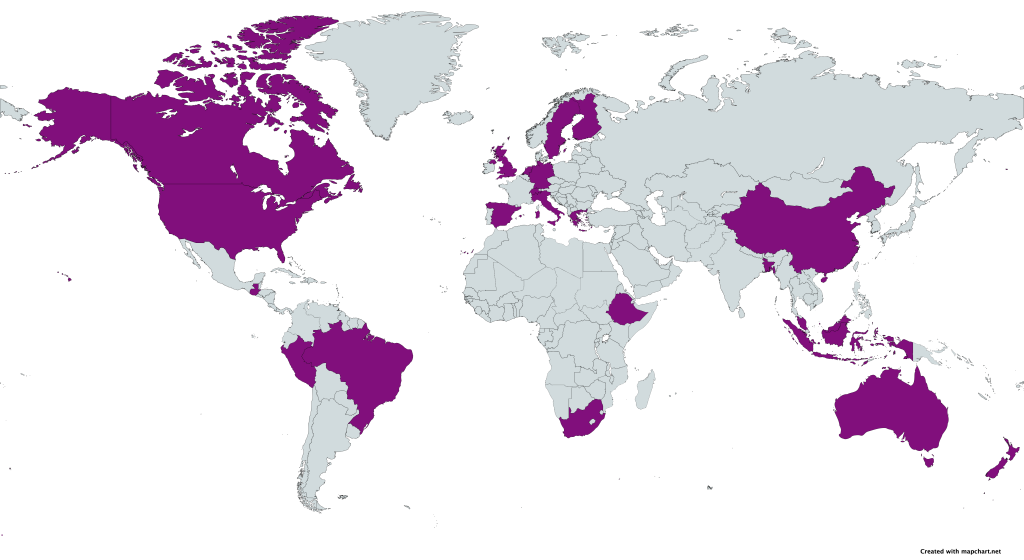
Could you be a Global Health student? (Part 1)
Hej all! Congratulations on submitting your applications (for those applying for the 2024-25 class). Since you’ve got some time on your hands as you wait for a reply, I thought I’d give you an insight into who makes up the class of 2023-24. So without further ado, here’s part one of who makes up this years diverse class of Global Health students!
Where is everyone from?

As you can see, we’ve converged on Stockholm from all around the globe! Most of the students in our class are from Europe, which likely has to do with EU rules around students and tuition, but there are representatives from North America, South and East Asia, Africa and Latin America. This adds a lot to our class discussions, where people bring perspectives and experience from a variety of global settings.
How old are we?

As you can see, we have a mix of ages which brings a mix of academic, professional, and life experience to the group. This isn’t just a bonus for class discussions – I’ve had everything from medical advice to baking recipes to the best places to cross-country ski from my classmates!
What are our professional backgrounds?

As you might expect, we do have a lot of medical doctors and other medical professionals. Nevertheless, professional expertise in the class ranges from economics and health informatics, to anthropology and public health. There are also those who have a completely non-medical background, and those who have just finished studying their Bachelor’s degree with very little professional experience. So, whilst it might have been a little intimidating to hear on the first day about all the years of medical experience that my classmates have, as you can see there’s no need to worry about whether your own experience will fit in the mix.
How much professional experience do we have?

The most common answer here was 0-2 years of professional experience – so have no fear if you’re coming straight out of studying another degree, and especially if you’ve just finished your Bachelors. Actually, you might find that you have an advantage, as you are used to studying and managing your time around an academic schedule, whereas those who have been working for a while might find it an adjustment to go ‘back to school’.
Could we speak Swedish before moving to Stockholm?

It should be noted – we do have some Swedes in our class, and I’m assuming they didn’t answer this question! But as you can see, most of us had little to no Swedish before moving here. Nevertheless, it’s amazing what you can pick up even in a few months, as well as with the free Swedish A1 course that the KI provides through Folkuniversitet. I’m much more comfortable with ordering in cafés and talking in shops (even if that often only involves ‘nej’ and ‘tack’!), and I’ve found that my reading comprehension has massively improved.
Thanks for following along on this tour of our class. However, as you’ve probably picked up – this is only part 1! I’ll see you next time to discuss our academic backgrounds, research experience, and give you some insider tips into our favourite eateries in Stockholm. Hej då!
Please note that this is only the class for this year, and this information has nothing to do with who is or isn’t likely to be admitted to the course, so please don’t be discouraged by this blog!

Emily - Global Health
Hi, I’m Emily! I’m from the UK, the USA and Malaysia, and I’m studying the Master’s in Global Health this year. I’m a medical student in the UK, and hope to work either in Emergency Medicine or Women’s Health, as well as in health policy development and implementation. In my free time, I love playing sports, thrift shopping, hiking and the outdoors, and trying out new cafés (all of which I have heard Stockholm is perfect for!). I’m excited to travel around Scandinavia this year, start some new sports, and explore the shops and cafés in Södermalm.

0 comments